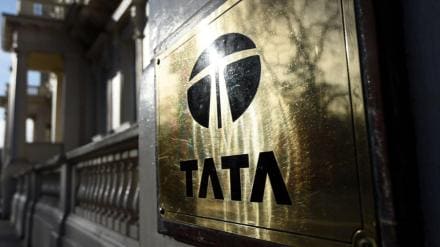The Tata Group is rarely in the headlines for the wrong reasons. Unfortunately it is now in the spotlight for an internecine conflict, involving Tata Trusts Chairman Noel Tata and a clutch of other trustees. The fact that the government has been requested to intervene in the matter suggests the rift may have snowballed into a major problem. What else could explain the Tata top brass flying to Delhi to meet Union ministers Amit Shah and Nirmala Sitharaman late Wednesday? While the nature of the discussions is not officially known, they ostensibly put forward their point of view on the differences that have cropped up between four of the trustees—Mehli Mistry, Jehangir HC Jehangir, Darius Khambata, and Pramit Jhaveri—on one side, and Noel Tata and Venu Srinivasan, vice chairman of Tata Trusts, on the other.
The fact is that the crisis is no mere boardroom spat: it threatens institutional credibility and the legacy of what has long been seen as India’s benchmark for principled business. The Trusts must resolve this rift quickly— and, critically—without further recourse to government mediation. The internal crisis within Tata Trusts is also a test of Tata’s institutional maturity as coherence, clarity, and trust must guide its internal processes. Since he is the chairman of Tata Trusts, which holds 66% stake in Tata Sons and has a substantial say in its operations, Noel should have been able to douse the fires in Bombay House himself, instead of seeking the government’s help.
To be sure, Noel has extra large shoes to fill as his predecessor Ratan Tata had a larger than life image and his authority—both over Tata Trusts and Tata Sons—was total. Nevertheless, one would have expected him to have sorted out the differences quietly without letting the tensions simmer. The Mistry camp is apparently miffed at not being privy to details of key decisions taken by Tata Sons. That is curious as Mistry himself was a close confidante of Ratan Tata for several years and in the past, Tata Sons didn’t share such information with all trustees on the grounds that it is competitive and could be price-sensitive. What prompted Mistry to suddenly become so conscious about his rights is curious.
The Mistry camp is also reportedly unhappy that the Trusts’ nominee directors on the Tata Sons board are not co-operating with them. In fact, this appears to have been the reason for the removal of Vijay Singh from the Tata Sons board. The Mistry camp is also apparently not comfortable with Noel’s idea to have a deputy MD at Tata Sons. In turn, Noel Tata is believed to have stalled Mistry’s appointment to the board of Tata Sons. Whether or not these grievances are justified is for the trustees to answer, but one thing is clear: both camps must meet halfway. Rather than letting the matter drag on, both camps should be willing to give and take—the only course to reach a consensus.
Foremost for the trustees should be the group’s business interests. There are also other pressing matters such as the listing of Tata Sons, which is linked to the purchase of the shares held by the Shapoorji Pallonji Mistry family. Noel must be his own troubleshooter just like Ratan Tata was. The faster the rift is bridged—on the Trusts’ own terms—the better for Tata’s legacy, its corporate entities, and for India’s broader discourse on governance.
